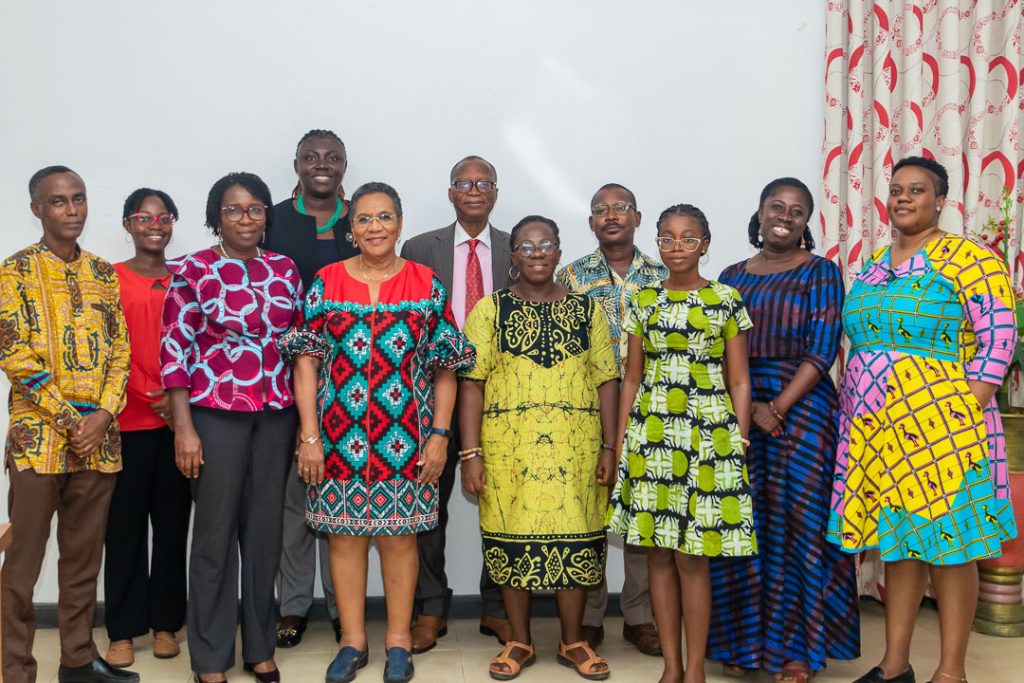- Login to ASPnet | Ghana Commission for UNESCO | Government Agency Responsible for the coordination of Ghana's contributions to and presence at UNESCO
THE MEMORY OF THE WORLD PROGRAMME IN GHANA

Abstract
Now more than ever, we face the rapid loss, destruction, and misplacement of valuable history and documentation, relevant to the memory of our culture, our society, and our world.
Think about it, how much do you know of Ghana before independence, or even after? Over the years the stories have been modified, and relevant details and documents have been lost or hoarded until we have been left with fragmented information that does not often tell much of a story. How much do we know of the history and origin of our various cultural elements? How many stories of historical events can you pass on?
It is often said that the history of a people is the embodiment of who they are. If we lose our history, and our heritage now, in the next, twenty, fifty, one hundred years, we leave posterity with absolutely no identity.
UNESCO realizes this gap. It is for this reason that the Memory of the World Programme was launched in 1992, aligning with the belief that the world’s documentary heritage belongs to all, should be fully preserved and protected for all, and should be permanently accessible to all without hindrance.
The MOW Programme
The Memory of the World Programme is UNESCO’s international initiative to safeguard the documentary heritage of humanity against collective amnesia, neglect, the ravages of time and climatic conditions, and willful and deliberate destruction. It calls for the preservation of valuable archival holdings, library collections, and private individual compendia all over the world for posterity, the reconstitution of dispersed or displaced documentary heritage, and the increased accessibility to and dissemination of these items through a variety of media.
The Program primarily aims to:
- Facilitate preservation of the world’s documentary heritage, particularly in areas affected by conflict and/or natural disaster
- Enable universal access to documentary heritage worldwide
- Enhance public awareness about the significance of documentary heritage among the wider public
The Ghana National Memory of the World Committee (GNCU-MoW)
The MoW Programme requires member states to set up national committees which will oversee and forward the objectives of the programme. In line with this directive, The Ghana National Committee for UNESCO Memory of the World Programme (GNCU-MoW) was set up in June 2021 as the governing body, spearheading the MOW Programme in Ghana.
As a requirement for the program, individual nation-states are to compile a national register of documentary heritage originating from their countries. To achieve this goal, it is incumbent on the country to raise awareness among the necessary stakeholders on the need for, and ways to collate and preserve documentary heritage.

Documentary Heritage Workshop
On the 20th and 21st of June 2023, a two-day documentary heritage workshop was organized in Accra, Ghana, to sensitize memory institutions in Ghana on the Memory of the World Program, and the identification and preservation of documentary heritage. Fifty (50) participants were invited from several memory institutions in Ghana including libraries, archives, and museums. Participating institutions were selected on the basis of their institutional or personal capacity, and the relevance of their work to the documentation and archiving of heritage documents.
The workshop was facilitated by Dr. Helena Asamoah-Hassan, Secretary-General of the Africa Regional Memory of the World Committee and Chairperson of the National MOW Committee, and Prof. Elisam Magara, Vice President (Training and Registers) of ARCMOW.
The workshop gave participants the opportunity to table the challenges in their various institutions. They also learned and shared knowledge on the identification and preservation of archival materials.
Dr. Helena Asamoah emphasized that National laws/legal instruments need to be adopted to allow the mandates of those memory institutions to be specified to give them the means and authority to fully carry out their missions.
The Ghana National Committee for UNESCO Memory of the World Programme is committed to continuously building the capacities of memory institutions and archival professionals for the identification and preservation of documentary heritage.
Find more about UNESCO’s Memory of the World Programme here; https://www.unesco.org/en/memory-world
